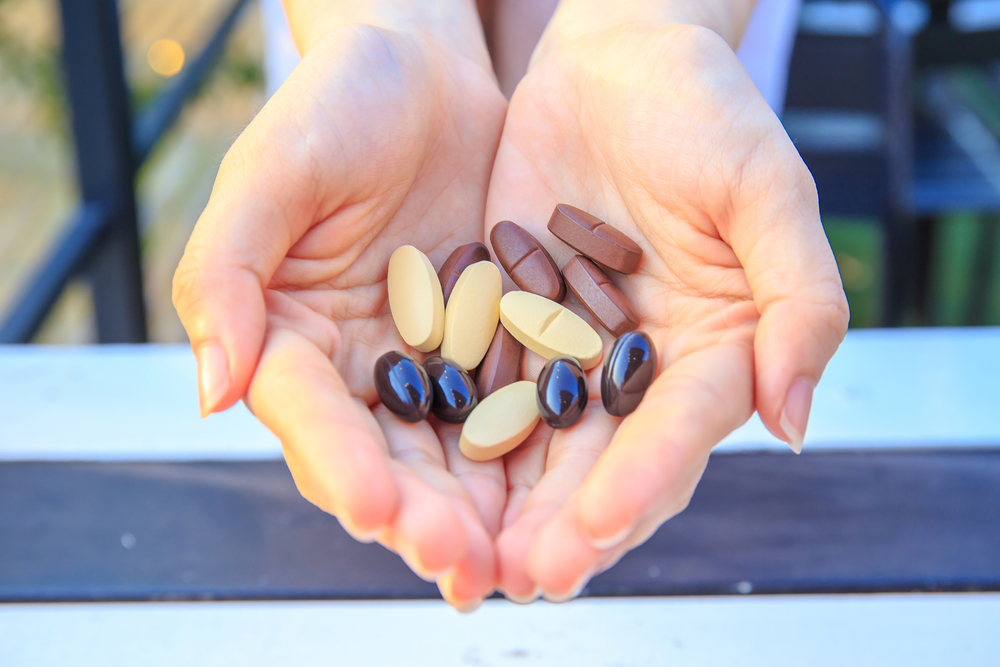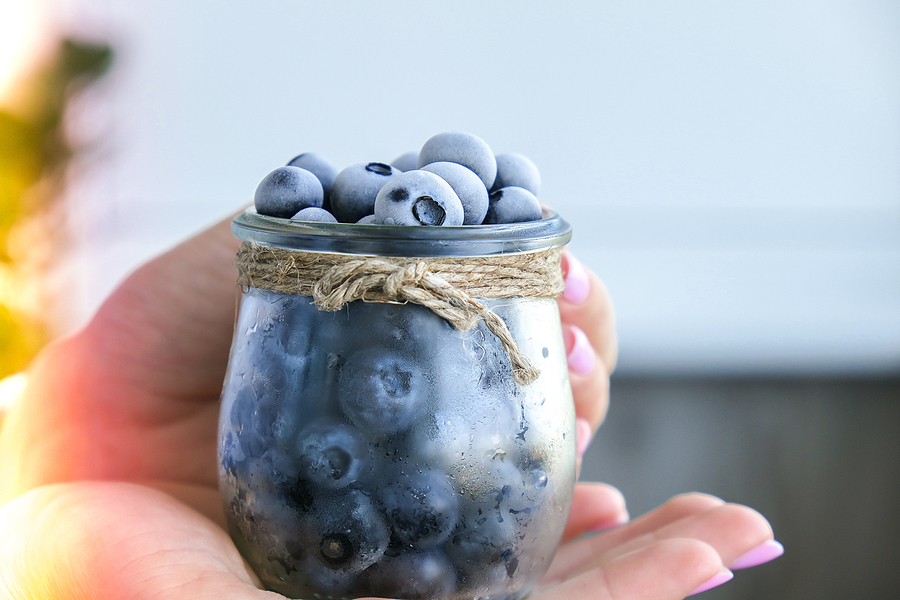Virtually everyone has a family history that includes a chronic illness such as heart disease, diabetes or cancer. You may be concerned that you carry a genetic predisposition to one or more of these diseases. But even if that’s true, recent science has shown there’s much you can do to prevent disease, starting with nutrition. The good news is that with proper nutrition, including dietary supplements, you can rewrite your life story with a happier ending.
So, why are so many people still unaware of the importance of taking vitamins? Perhaps part of the problem is that there are so many questions people have: Which vitamins do you need and what are the best multivitamins to take? Why are drug companies and doctors often opposed to nutritional supplements? Why is there continued debate over vitamin safety and dosages?
I can help you find answers to some of these questions. I’ve used nutritional supplements and dietary changes as medical therapies for over 20 years. To this day, I recommend that every woman take a pharmaceutical-grade multivitamin. Yet I agree there are reasons to be concerned about how multivitamins are marketed and used. Let’s talk about what I advocate when it comes to dietary supplements and how I answer women’s questions about the vitamin controversy.
The Link Between Nutrition and Chronic Diseases
The increase in chronic illnesses is one of the major health stories of our lifetime. Today seven out of ten Americans will die from the complications of a chronic disease, including heart disease, cancer, obesity, diabetes, depression, metabolic and digestive disorders (including heartburn and acid reflux), rheumatoid arthritis, fibroids, and osteoporosis, just to name a few. Acute diseases, by contrast, are characterized by rapid onset, are time-limited, and are usually treated with antibiotics or surgery.
Why the dramatic increase in chronic diseases? Clearly we are living longer and under greater stress, both of which contribute to degenerative conditions. But only recently has the role of nutrition begun to be given its due.
Conventional practitioners treat chronic diseases with an ever-growing array of expensive pharmaceuticals that may temporarily relieve the painful or uncomfortable symptoms, but do nothing to resolve the underlying cause — and may actually cause other serious problems. That’s because conventional medicine is focused on disease screening and drug treatment — ignoring the more powerful approach of disease prevention, especially through nutrition.
What about the role of genetic factors in causing disease? In my view, genetics rarely determine definitively that someone will develop a disease. Instead, you may inherit a genetic predisposition — a kind of vulnerability — that when combined with other factors results in disease. Nutrition is arguably the most important of those factors.
Many of my patients are surprised to learn that their chronic condition or disease can so often be traced to a nutritional deficiency. But the linkage is clear enough. Nutrition affects our immune system, organ function, hormonal balance and cellular metabolism. The nutritional deficiency comes first, followed some years later by symptoms, which lead in time to disease. To make things worse, the whole downward spiral is accompanied by accelerated aging.
Multivitamins and Hormonal Balance
Our bodies require micronutrients for the non-stop process of synthesizing hormones from simpler molecules. It is simply impossible to achieve and maintain hormonal balance without such support. I have found it helpful to describe hormonal balance to my patients of the Women to Women clinic, as a kind of symphony in their bodies in which the instruments of the orchestra play together to create health. When some of the players aren’t there, it doesn’t sound right — and you don’t feel good.
Remember that our hormones fluctuate with our circumstances. It is important to understand that cortisol and adrenaline levels rise and fall as we work out stressful situations. Stable insulin levels provide the framework that allows all of our major female hormones to communicate with one another. If nutrients are low or missing, the balance of this communication is undermined. To remain flexible and strong, especially when approaching menopause, we all need to give our hormones the wide array of nutrients they need.
Is it any wonder that so many women become more aware of their health problems at mid-life? That’s the really positive change we see in perimenopause and menopause — women wake up to the choices that have given rise to their symptoms, such as poor nutrition — and then take control of their health. Improving dietary choices is a good start, but you need a pharmaceutical-grade vitamin, too. Let’s find out why.
Why Ordinary Nutrition isn’t Enough
Americans appear to be so well fed, it seems impossible that we aren’t getting enough nutrients. But study after study has shown that most of us don’t get adequate amounts of key vitamins and minerals. One of the consequences is the increase in chronic diseases. Beyond that, many of us are living longer, but feeling worse – our quality of life is suffering as we age. We are also seeing chronic diseases manifest in younger and younger people — children are now routinely seen with adult diseases like diabetes and high blood pressure — which arise from the insulin resistance caused by modern diets.
How can it be true that ordinary nutrition is not enough? It’s partly a quantity-versus-quality problem. Most of us aren’t eating enough of the right things. We eat a lot of what I would call non-food: fast food, over-processed food, food with highly refined sugar, simple carbohydrates, preservatives, and large quantities of trans fats. We ingest stimulants that actually get in the way of our bodies’ ability to absorb vitamins and minerals.
Another reason is that our farming methods have changed for the worse. In the past our crops contained the nutrients of the soil, and those nutrients nourished us. Now we use pesticides, inorganic fertilizers, and waste-treated water to grow a lot of food quickly and cheaply in soil that would otherwise be unable to support life. They make the crops big and colorful but nutritionally empty — and mostly tasteless, too! Think of what store-bought tomatoes taste like now compared to when you were a child.
We also import our food from vast distances, so it must be treated chemically to keep from spoiling. We buy lettuce in a bag because it’s easier than washing it. But did you know that pre-bagged salad greens go through “post-harvest processing” in which the greens are exposed to a variety of gases before the bag is sealed to ensure crispness for weeks? These gases, by the way, are not required to be disclosed as preservatives. By the time you make your salad, the enzyme activity of those greens is only a memory.
A final factor is dieting for weight loss. Almost half of all American women are on some kind of diet at any given time. Many of these diets rob the body of vital nutrients. And yo-yo dieting (weight loss followed by weight gain, and then another cycle of weight loss) is a major source of stress for our bodies.
The Link Between Stress and Nutrition
On top of our questionable diet, our bodies have to deal with a lot of external stressors that are beyond our control. Whether environmental or emotional, these stresses are far beyond what our bodies were designed to deal with — and they increase the gap between our bodies’ nutritional needs and the vitamins and minerals that are available in our diets.
Let’s start with the environmental issues. Toxic chemicals, air pollution, radiation, artificial polymers, hormones in beef and milk, and pesticides and chlorine in our drinking water are just a few of the man-made hazards we all face. Fast food hamburgers have been shown to contain traces of over 100 pesticides. Even the common practice of microwaving in plastic containers imbues our food with toxins.
We also have the extraordinary stresses of everyday life: children, spouses, work, friends, parents, obligations. Stress has been shown to deplete nutrients and suppress immune function. That’s in part because stress produces cortisol, and sustained high levels of cortisol are very detrimental to the body and the brain. It’s why we see so many patients at the Women to Women clinic with adrenal fatigue. And there’s no doubt in my mind that the level of stress women deal with today is unprecedented.
So stress compounds the lack of nutrition in the modern diet. If the deficiency is sudden we can get very sick very quickly. But more often the nutritional deficiency wears us down bit by bit, and we slowly, steadily deteriorate. Eventually we show signs of accelerated aging and chronic disease. This is why so many of us crash and burn in perimenopause. Our problems will persist and likely worsen unless and until we consistently get the necessary nutrients we need. This is why nutritional supplements can make such a dramatic difference for women at mid-life.
The Role of Nutritional Supplements
Between the poor nutritional quality of our diets and the nutritional burdens added by modern stressors, you can understand why I tell every woman who walks through my doors that she should be taking pharmaceutical-grade multivitamins every day. This small step translates into a huge leap for our bodies, which after all are miraculously good at healing injury and preventing illness if they are given adequate support.
And mainstream medicine is beginning to catch on. A 2002 study in the Journal of the American Medical Association stated that a lack of certain vitamins “is a risk factor for chronic diseases and common in the general population.” The report continues, “Most people do not consume an optimal amount of all vitamins by diet alone. It appears prudent for all adults to take vitamin supplements.”
As many as half of us already take some form of dietary supplement. So the obvious question is this: Why doesn’t the other half take multivitamins too? The less obvious question is just as important: Why aren’t the people who do take multivitamins clearly healthier than those who don’t?
Many people don’t take multivitamins because they believe that doctors oppose dietary supplements. Their doctors may have discouraged them from using supplements in the past. In fact, there are good reasons why doctors are often hesitant to endorse the use of dietary supplements, and it is a good idea to understand why. Click here to read our article, “Why Doctors Are Often Opposed To Nutritional Supplements,” for more information.
MarcellePick.com offers high-quality, pharmaceutical grade vitamins and supplements to enhance your health. Click here to check out our store.








